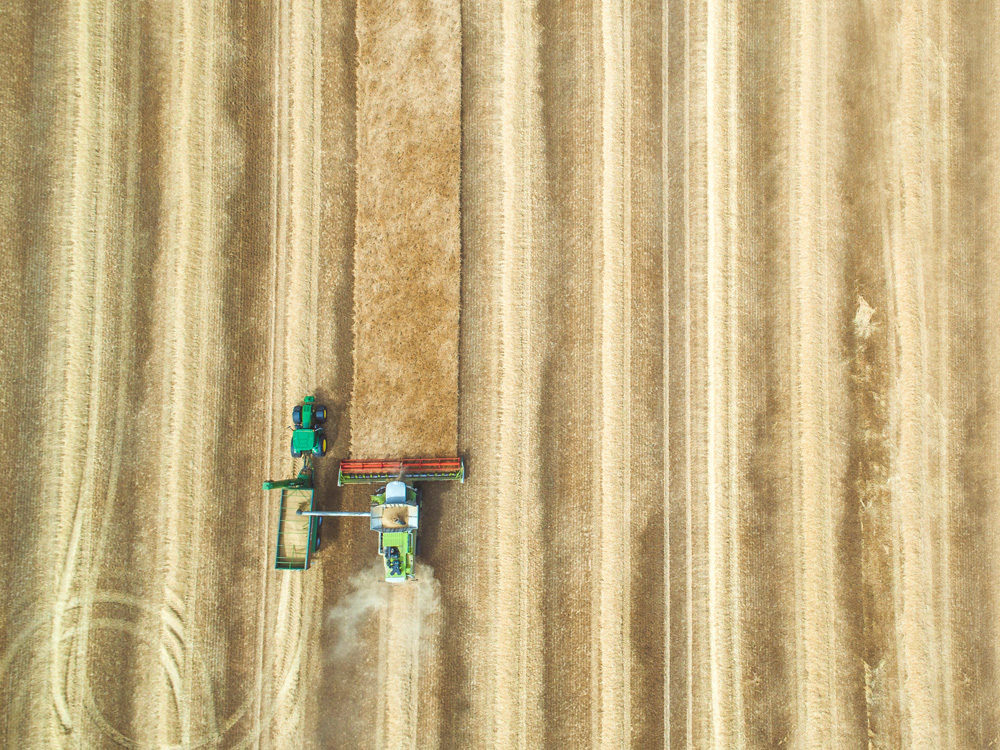The Knight Frank Rural Property and Business Update – 11 January
Our weekly dose of news, views and insight from the world of farming, food and landownership
With kids back learning from home and the country in lockdown once again it’s been a testing start to the year for many of us. But agricultural commodity markets are at least performing strongly. Defra is also looking to unlock some of the agri-tech benefits of Brexit. Better wheat prices, however, shouldn’t distract farmers from the challenges of adopting to life outside the Common Agricultural Policy.
Please do get in touch with me or my colleagues mentioned below if you’d like to discuss any of the issues covered. We’d love to hear from you
Andrew Shirley, Head of Rural Research
4 minutes to read
In this week’s update:
• Commodity prices – Grain starts year in bullish mood
• Brexit boost – Defra looks to unlock biotech benefits
• Farmland market – How values performed in 2020
• Country houses – Prices bounce back
• Global news – Australia protests Chinese barley tariffs

Commodity markets – Grain market hits 2021 running
A cut of almost half a million tonnes in forecast UK wheat production this year has helped values break the £200/t barrier for the first time since 2013.
Defra blamed its latest lower estimate, which predicts wheat output sliding to below 9.7 million tonnes, on a drop in expected yields. The failure of sterling to bounce back more strongly after the Brexit trade deal has also helped keep UK wheat competitive on world markets.
Oilseed values are also buoyant off the back of dwindling US soybean stocks, strong demand from China and concerns about the Latin American oilseed harvest, says trader Frontier. “The reality is that the US will run out of beans if its current pace of crush volumes and exports is maintained.”

Brexit boost – Defra looks to unlock biotech benefits
Last week I said that even with a trade deal the government needed to demonstrate to farmers the benefits of Brexit. Defra minister George Eustace must have been listening because in his keynote address to the 75th Oxford Farming Conference he talked about his desire to unlock the potential of gene editing.
Gene editing, which is a way to speed up the traditional plant breeding process to deliver improved yields and pest resistance, has been banned by the EU because it lumps it together with more controversial genetic engineering techniques that splice the DNA from different organisms together to create so-called “Frankenstein” foods.
"Defra’s view is that organisms produced by GE or by other genetic technologies should not be regulated as GMOs if they could have been produced by traditional breeding methods."
“Now that we have left the EU, we are free to make coherent policy decisions based on science and evidence and it starts today with a new consultation on proposed changes to English law that will enable gene editing to take place, so that we can achieve a simpler, scientifically credible regulatory framework to govern important new technologies.
If we are to deliver the ambitions we have for the environment and make space for nature, then we must rebalance the incentives in our future agriculture policy to encourage sustainability, but we must also use the tools that science provides to ensure that profitable food production and sustainable land management go hand in hand.”
Read the minister’s full speech on gene editing
Take part in the regulation of genetic technologies consultation
Farmland market – How values performed in 2020
The preliminary results of the Knight Frank Farmland Index show that agricultural land values managed to escape 2020 relatively unscathed despite the number of challenges thrown at the farming sector.
A 1% slide in average values across England Wales during the fourth quarter saw a similar drop for the year as a whole with our index slipping back to just below £7,000/acre (although some sales achieved far higher prices). Given the potential impact of Brexit on farming incomes as the Basic Payment is cut, mooted changes to the capital gains tax regime and Covid-19, this should be seen as a remarkably resilient performance.
"Rising commodity prices and a trade deal with the EU, along with a more active market – last year the volume of land launched publicly was down over 30% compared with 2019, in itself a pretty barren 12 months - should offer buyers and sellers some confidence during 2021."
Contact Clive Hopkins if you are thinking of selling your farm or estate and would like some initial advice.
Country houses – Price growth strongest for over half a decade
The country house market finished the year as it began after the market reopened in May, with high-value properties proving to be the strongest performer during the final quarter, says my research colleague Chris Druce.
In a year dominated by the escape-to-the-country trend, properties valued at more than £5 million saw the strongest growth in the three months to December, rising over 5%. This pushed the annual rate of growth to almost 8% in that price bracket.
Overall, the index recorded an increase of 1.7% in the three months to December. This took the annual price change during 2020 to 4%, which was the best performance for more than six years.
Read more of Chris’s insight into the country house market
Global news – Australia protests Chinese barley tariffs
Farmers down under have been one of the victims of China’s trade wars with the rest of the world. The country’s barley exports have been hit by an 80% tariff implemented, says Beijing, because Australian arable producers are unfairly subsidised. The Australian government disagrees claiming the move is political and has urged the WTO to sanction China.
Photo by cloudvisual on Unsplash